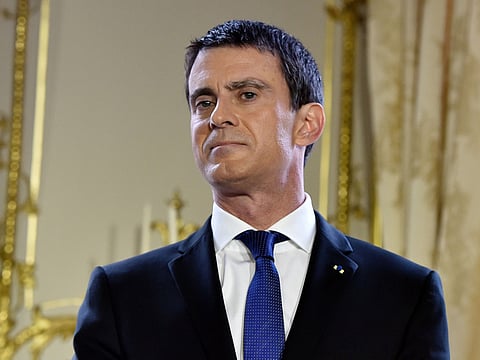Authoritarianism is the new normal now
Anyone looking at France as a bastion of liberal thought and a freedom-loving society will be aghast

Something strange is happening in Paris. Prime Minister Manuel Valls has declared that France’s State of Emergency — announced after the terror attacks last November — will be extended for “as long as is necessary” to destroy Daesh (the self-proclaimed Islamic State of Iraq and the Levant).
This is strong stuff. Under these special dispensations, police can listen to a suspect’s telephone conversations without getting a magistrate’s authorisation; searches and seizures of terrorist suspects’ houses are allowed day and night without judicial oversight; and censorship of the media is, in theory, possible.
Anyone looking at France as a bastion of liberal thought and a freedom-loving society would be aghast. But they are missing the point. The famous events in May 1968 may have seen a full month of happy rioting, a general strike and a great deal of grandstanding from the Sorbonne university in the Latin Quarter to the Renault factories in Billancourt and Flins. But when General de Gaulle flew by helicopter back to Paris to restore order (after checking on the army on the Rhine), one million people marched up the Champs-Elysees in his support — just as, almost two centuries earlier, the turmoil of the French Revolution ended in a neat, bloodless coup by one Napoleon Bonaparte, whose popularity remains intact.
The reality is that in France, authoritarianism is far from strange. It is the norm. The “events” of May 1968 may have started as a revolt against single-sex student lodgings at the Nanterre campus, and the free love slogans that followed endured over the years. But they did not change much in the way of civil liberties.
It did not help that the Marxists who took over what Gramsci called the “superstructure” of France’s intellectual and cultural thought in the following decade had been shaped by doctrines from Communism, Maoism and Trotskyism, which if anything were even more illiberal. Not for nothing has the Ministry of Interior (a nice way to say the Police Ministry) been the surest way to a great political career in France. Manuel Valls was first a tough-talking, popular minister of the interior. So was Nicolas Sarkozy. So were Georges Clemenceau, Francois Mitterrand, Jacques Chirac and many more, including, famously, the socialist Jules Moch, who ordered the army to shoot striking miners in the winter of 1948. But a taste for authoritarianism does not equal a delight in dictatorship.
The French, by and large, like to see that their politicians do not overstep the boundaries. This is an elastic concept, I know, but the reality is that human rights and minority groups protest against the obvious profiling of suspects in public places; anti-discrimination legislation abounds; and several independent bodies guarantee a hearing to victims who feel they’ve not been well-served by the regular courts.
Still, it is all but accepted in France that the security services — DGRI (the equivalent of MI5) and DGSE (MI6) — quietly operate with a ruthlessness unknown in countries where greater public scrutiny is the rule.
Back during the Bush presidency, the provisions of the Patriot Act were loudly decried in France, even though its main practices were already in use here. Indeed, these practices were only given a formal legal basis after the Charlie Hebdo killings last January, with a law that allows immediate personal data-hacking and wire tapping. It even reforms a corps of agents specialised in breaking into suspects’ houses or cars — all “in the interests of France’s National Defence, foreign policy interests, major economic or scientific interests”.
Provisions are made for an independent authority to control such practices, but only after the fact. It sounds like an Orwellian nightmare, but the French don’t see it that way — even though, following the Bataclan killings, more than 1,000 searches made under State of Emergency provisions returned only two dozen illegal weapons and produced fewer than 10 arrests. The homes of hundreds of Muslim suspects were wrecked, however.
From abroad, this may appear an unacceptable slide towards repressive regime rule, but the French are more disposed than you might think to pay a high price for security. After 1968, remember, De Gaulle was rewarded at the ensuing general election with a clear majority.
— Telegraph Group Limited, London, 2016


